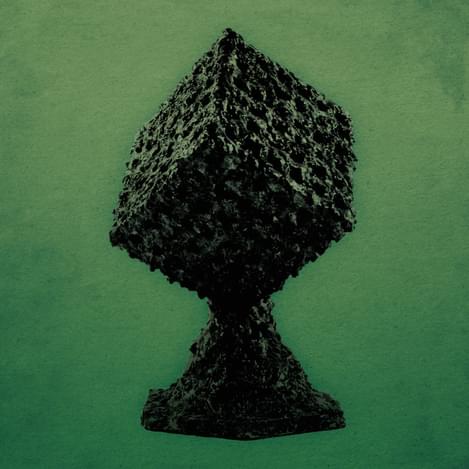Merchandise - After The End
"After The End"

Where they once thrashed around like a cod in a net through hardcore, punk, post-punk, noise pop and rock, as they headed towards the present day they seemingly softened, their edges blunted by the allure of beauty. They’ve not softened in the sense that they were now purveyors of cottony bubblegum dross, but they didn’t seem to need to try and rend your brain asunder with volume – they’ve become all about the melody, the slow burning structures and the meticulous nostalgia. Every time they’ve dropped a release they’ve seemed to begin anew, and with this album, that tradition continues.
Almost instantly, comparisons to the 1980s feel extremely pertinent. At times on After The End, Merchandise aim to ape eyeliner bandits The Cure (“Green Lady”) or stadium rock like Bruce Springsteen (“True Monument”) or the hammy power ballads of Bon Jovi (“Enemy”). It’s a record doused in reverb and the lo-fi electronics of early synthpop. High production values and a dreamy bent seem to have aided that tone along, with the main order of business for Merchandise being stacking layers like Kanye stacks millions. Ambient droning, vaguely shoegaze-y atmospherics congeal around Carson Cox’s maudlin baritone like the spiritual offspring of Joy Division and Cocteau Twins. It’s a derivative collection of tracks, or at least seemingly, anyway, but a collection that occasionally thrills nonetheless.
Preceding single “Little Killer” is a tangled knot of jaunty jangle-pop axe fretwork, the autumn-leaf crunch of drum and emotive, gutsy rawk vox. It’s a bit shuffly, a bit SoCal-fuzz, but ultimately, it’s a bright, beaming example of great pop. The hooks are relentless, the chorus enormous. “Telephone”, with nods to Orange Juice and Talking Heads, is slickly controlled and swans about with a pristine sheen. It’s a calculated, bullseye anthem that feels so genuinely ‘80s that it may as well be a cover. Merchandise prove, with aplomb, that they are attuned to the intricacies of pop, despite having a CV with zilch experience. It would appear that it courses through their veins.
It does feel a little repetitive. Not within the album itself, but regarding music as a whole. Countless acts have drawn from the well of shoulder pads, pastel shades and mullets, making it difficult to continue to woo for the acts giving it a go nowadays. Merchandise struggle to craft an album that could gain a ‘modern classic’ status simply by the limitations that the genre throws up. After The End is frequently great, but it’s also frequently over-familiar.
Where other reinventions by the eternal shapeshifters have turned out to be devilishly astute changes, this one falters. Not through their implementation of their inspirations and goals of creating a “formal pop record”, but through the wider context of recent musical history. There have been bands that have used the same tools to do much better (and much worse). After The End doesn’t trip flat, knocking itself toothless and unconscious, but it does stumble. ‘80s pop is an area of music that’s had a grand international-scale mining operation thrust upon it, and it’s rare that an act can return from the pit with gold these days.
But hey, when it’s good it’s very good. It’ll still tug with some fervour at your heartstrings, and it’ll still provide rousing singalong moments at festivals. There’s at least a consolation prize to be won here, if not more. After all, “Little Killer” is ruddy marvellous.
Get the Best Fit take on the week in music direct to your inbox every Friday

Tunde Adebimpe
Thee Black Boltz

Julien Baker & TORRES
Send A Prayer My Way

Bon Iver
SABLE, fABLE





